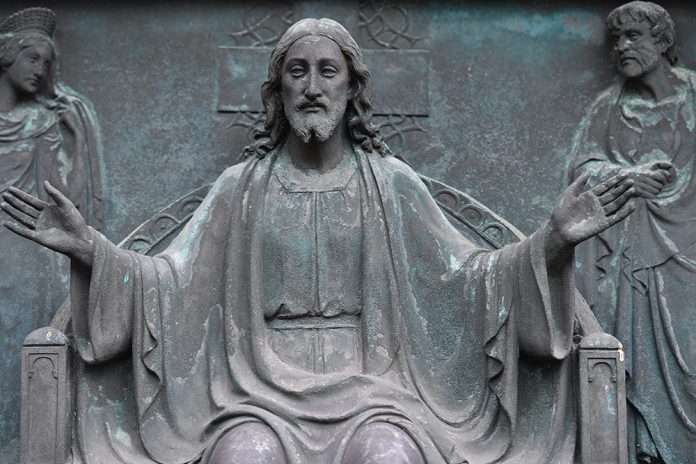
Help them follow in the footsteps of Jesus
JARED DEES
God has something in store for the students you teach. Each and every one of them has a vocation. A vocation is a calling — not just a job we were meant to do some day, but a calling from God to become someone in relationship to him. More specifically, in the context of our Catholic faith, God may call your students to serve him and work toward the salvation of others through vocations to married life, consecrated life, the priesthood, or single life. Following in the footsteps of Christ, they will be able to work toward their own salvation and also the salvation of those around them. Your classes may be one of the few opportunities a young person gets to discern and discover their religious vocation. Help them to discover their calling using some of these approaches.
Speak of your vocation
What is your vocation? What has God called you to be, do, and say for him right now and in the past? How did you hear and act upon this calling from God? Bear witness to your own vocation in class. Your stories of discernment will help them discern their own vocation. First, your students will then know that a calling from God is something people really do come to understand. Second, it will help them reflect on the ways they can discover their own calling from God.
Invite guest speakers
Not many young people get to interact with those who have taken up various religious vocations. They may know many married couples, of course, but most children interact infrequently with priests and religious. Inviting your parish pastor or associate pastor into class to speak with the kids for a few minutes is a great idea. You might also research religious orders in your area to see if a religious brother or sister would be interested in visiting the class to speak with them about their vocations to the consecrated life. We cannot possibly expect vocations to the religious life to increase unless young people encounter and interact with those who have responded to a calling from God.
Tell stories of saints
Share the stories of saints as they realized their vocations. Some, like St. John Bosco or St. Joseph, experienced their calling directly in a dream. Others like St. Francis of Assisi heard a calling in prayer through words in their minds and hearts. Still more felt a more gradual determination to live their lives in dedication to God and held firm with unwavering faith in his purpose for them. One consistent aspect of saints’ vocation stories is their firm commitment to follow the Lord’s calling despite opposition from family, friends, or those that opposed Christianity. When sharing the stories of the saints, invite the students to reflect on the ways they can relate to their lives. Have them think of the support and opposition they might experience if they were to take on a similar vocation.
An examen plus journaling
The concept of a vocation can sometimes seem like a lofty, almost unattainable realization. While the stories of saints are essential to understand how we hear a calling from God, we have to be careful not to think we only encounter God’s prompting in one giant revelation about our lives. In reality we can frequently experience God’s communication with us in small ways every day. This is why the practice of a daily examen is seen to be so helpful among religious orders, particularly the Society of Jesus. Whether you give your students the time to go through a full examination of their days or not, it is important to encourage them to develop the habit of reflecting on their day with the help of the Holy Spirit to recall moments in which they felt, saw, or heard God’s grace in their lives. A simple set of questions could include:
■ What are you thankful for today?
■ When did you see God today?
■ Who needs God’s help today?
■ What could you do better tomorrow with God’s help?
Pray for vocations
Dedicate some of your class prayer time to praying for vocations. You can pray in a general way for an increase in vocations to the priesthood or religious life. Regarding the vocation to married life, offer to pray for your students’ future spouses. You can also offer prayers for the vocations of the students in your class. Pray that they recognize their vocations and have the courage to act upon them.
JARED DEES is the founder of TheReligionTeacher.com and the author of Christ in the Classroom: Lesson Planning for the Heart and Mind, which helps develop lessons that lead students into an encounter with Christ.
PHOTO: BOONCHUAY1970/SHUTTERSTOCK
This article was originally published in Catechist, April-May 2020.




